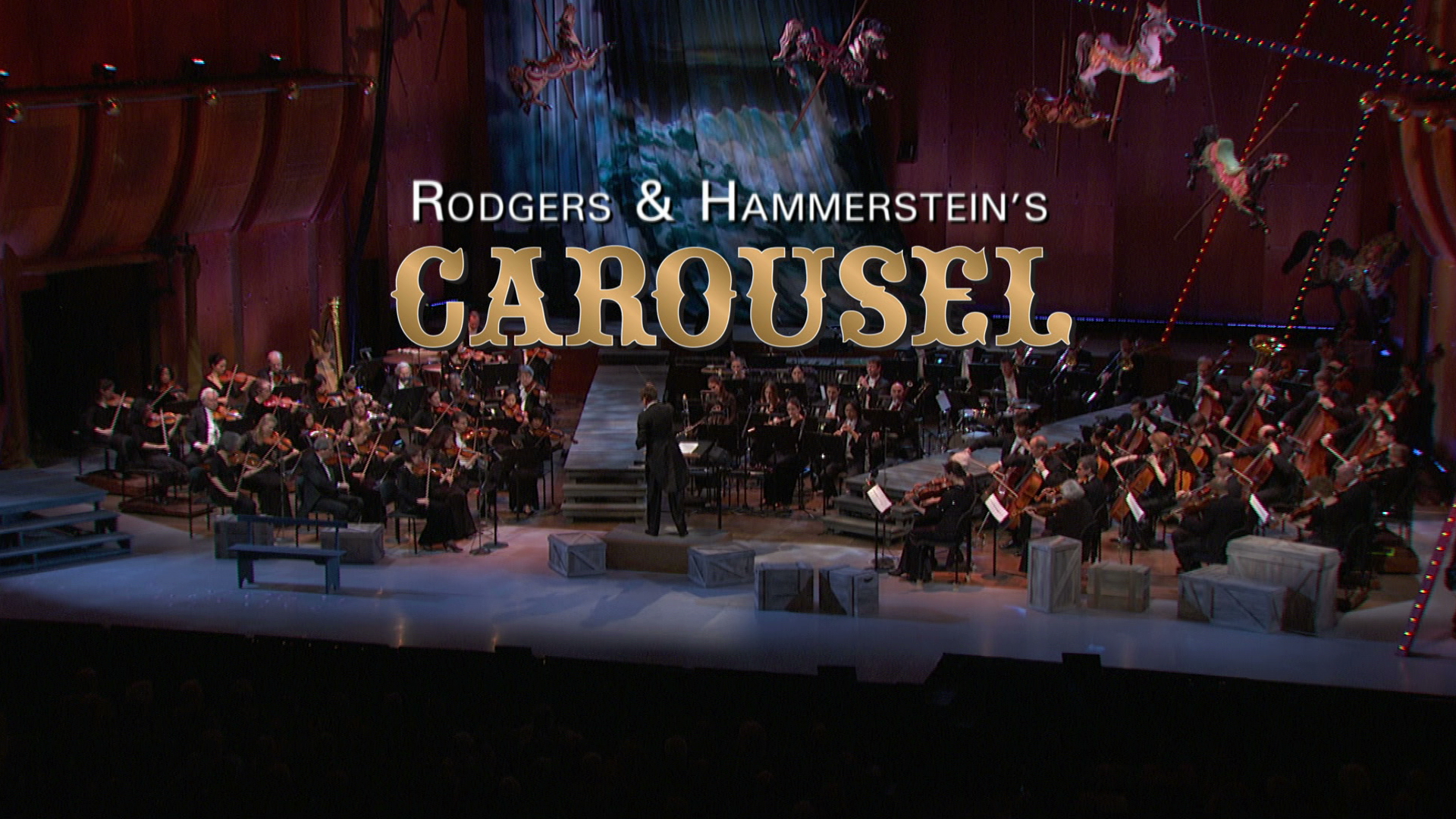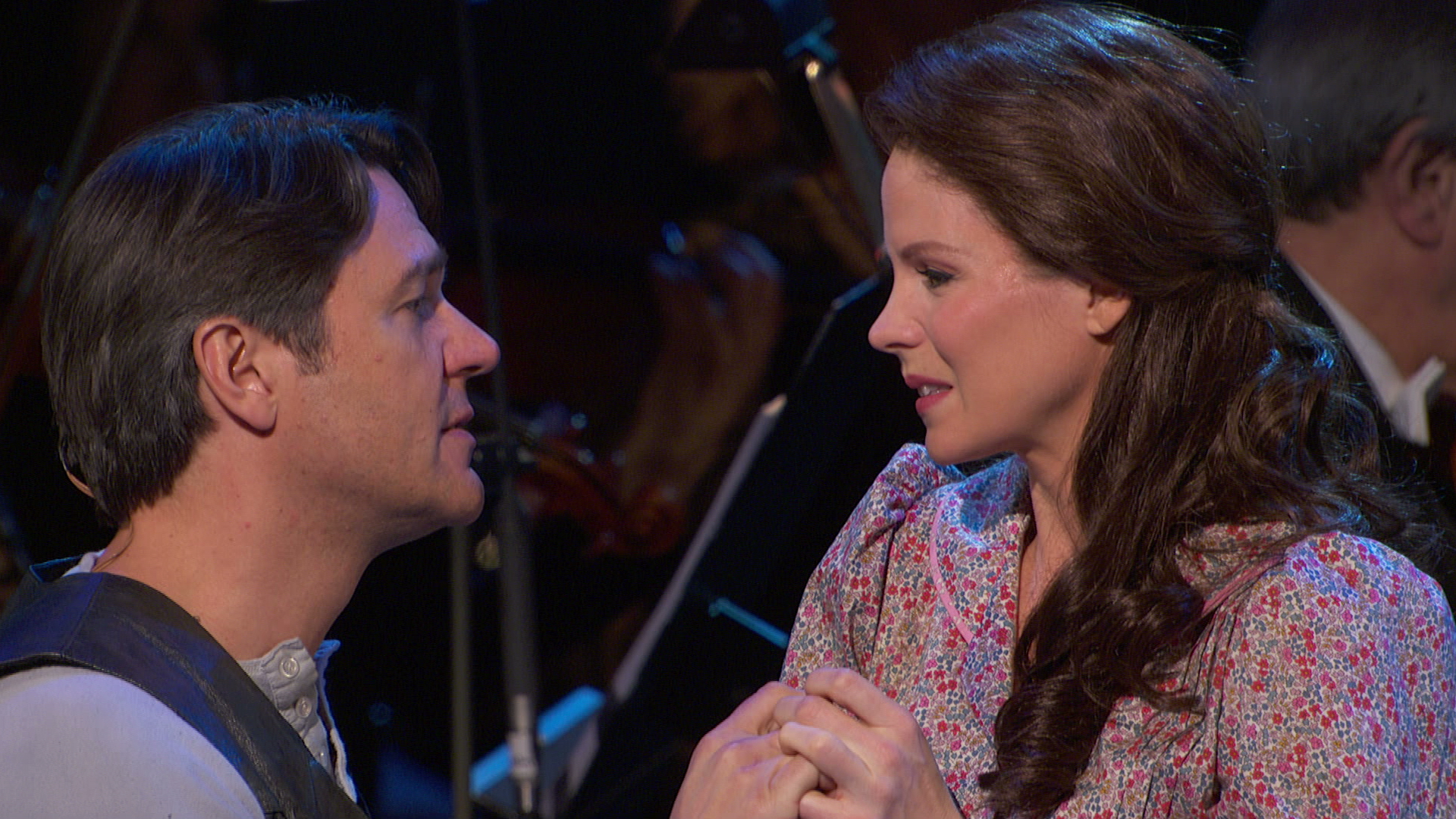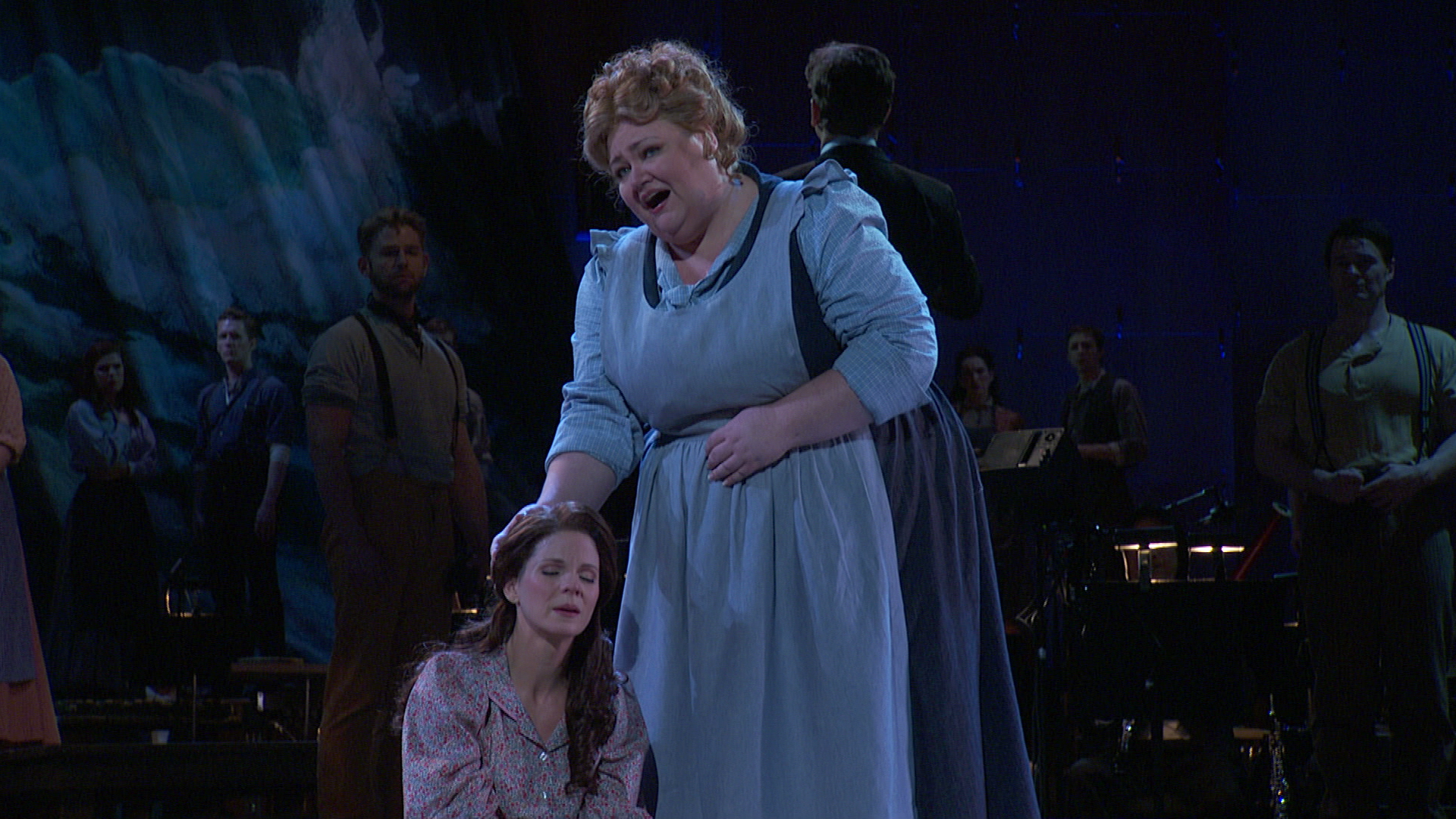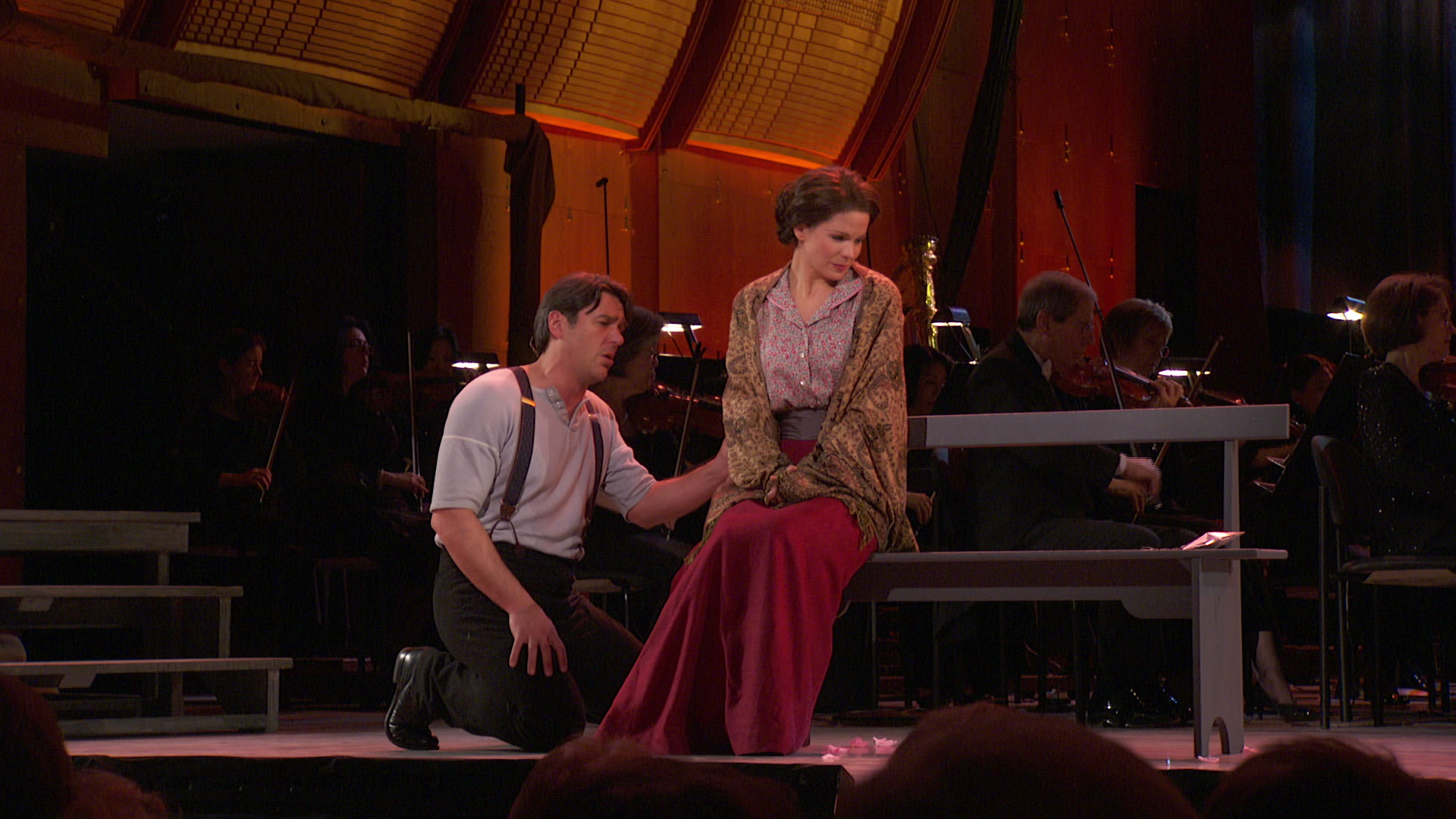CYBERSPACE — Carousel is a well-loved but seldom-produced musical from Broadway’s Golden Age. The second musical created by Rodgers and Hammerstein, the 1945 gem features some of the most gorgeous music ever put onstage. Why is it rarely produced? Perhaps because the music is a little “too” good—a borderline operetta beyond the ability of rickety community theaters.

Given how rarely Utahns get to see Carousel (the last performance UTBA reviewed was Utah Festival Opera’s production in 2015), it is a treat that local audiences can stream the Lincoln Center’s 2013 production on BroadwayHD, beginning April 1. The new streaming service, which costs $11.99/month, begins its Carousel with an introduction by Audra McDonald (who won a Tony for her role in the musical in 1994).
Instead of a traditional musical with sets, this semi-staged production put performers in front of the New York Philharmonic. Staging the action in front of the orchestra added visual interest and kept things engaging throughout because, much like an opera, Carousel included long passages of characters singing about their feelings and motivations. Fortunately, John Rando’s direction ensured that actors still moved about the stage naturally and the show never lacked drama or human interest.
Almost the entire musical was scored, and featured classics like “You’ll Never Walk Alone” and “If I Loved You.” The all-star cast was led by Nathan Gunn as a brash and flawed carnival barker Billy Bigelow. His tragic trajectory includes spouse abuse, suicide, and blowing his last chance at redemption in the next life—not exactly a feel-good story. The second Gunn started singing, my jaw practically hit the floor. His deep, dreamy, masculine voice had an old school flavor—when he finished his over 6-minute “Soliloquy,” even some members of the orchestra were tapping their bows in appreciation.

On the receiving end of Bigelow’s rage was his wife Julie Jordan. As performed by Kelli O’Hara, Julie was strong but also broken—a delicate, pensive woman who heartbreakingly bottles her abuse and never stops loving her man, even if she must admit she’s better off with him dead and gone. Both O’Hara and Gunn give luscious performances, as did the supporting cast including a jolly Stephanie Blythe as Nettie Fowler, whose “You’ll Never Walk Alone” was perfectly and tenderly sung. Rounding out the cast was Jessie Mueller as Julie’s best friend Carrie, and Jason Danieley as her ambitious but self-righteous fiance Enoch Snow. The pair had good chemistry and were cute together. While Danieley’s accent felt a little over-the-top at times, he sure could hit a high note.
The stage was framed by simple but elegant dressing, including overhanging merry-go-round horses, and a giant “Carousel” sign. Camera work and angles were impressive and included many over-the-shoulder reverse shots that work great on screen. Glenn Weiss (who directed the recording) created a live capture that serves the work on stage well. While it is a risk that stage actors may perform too big for the small screen, the cast did a fine job with gesture, facial expression and voice control so that the musical played well on the streaming service.
Technically speaking, the production was superb, although a couple costume choices stood out. Billy felt overdressed—his maroon shawl collar sweater didn’t feel right for a small town carnival barker, let alone one scheming murder with an ex-con at the docks. The elderly angel’s clashing royal sleeves and navy vest also seemed like an odd choice by costume designer David C. Woolard.

The passing of time can make Carousel difficult to watch at times, due to its treatment of domestic abuse, outdated gender roles and onstage suicide. It is also quite slow by modern tastes. (There is an entire song called “This Was a Real Nice Clambake” that recounts a menu in painstaking detail.) But, make no mistake, this is an outstanding production; the music and performances are glorious, and well worth the price of a streaming service.
[box]The Broadway production of Carousel is available to stream on BroadwayHD at www.broadwayhd.com, beginning April 1, 2023. Through March 31, 2023, a one-year subscription plan is available for $99.99 at www.broadwayhd.com/p/promo. Regular prices for subscription plans are $11.95/month or $129.99/year.[/box]
